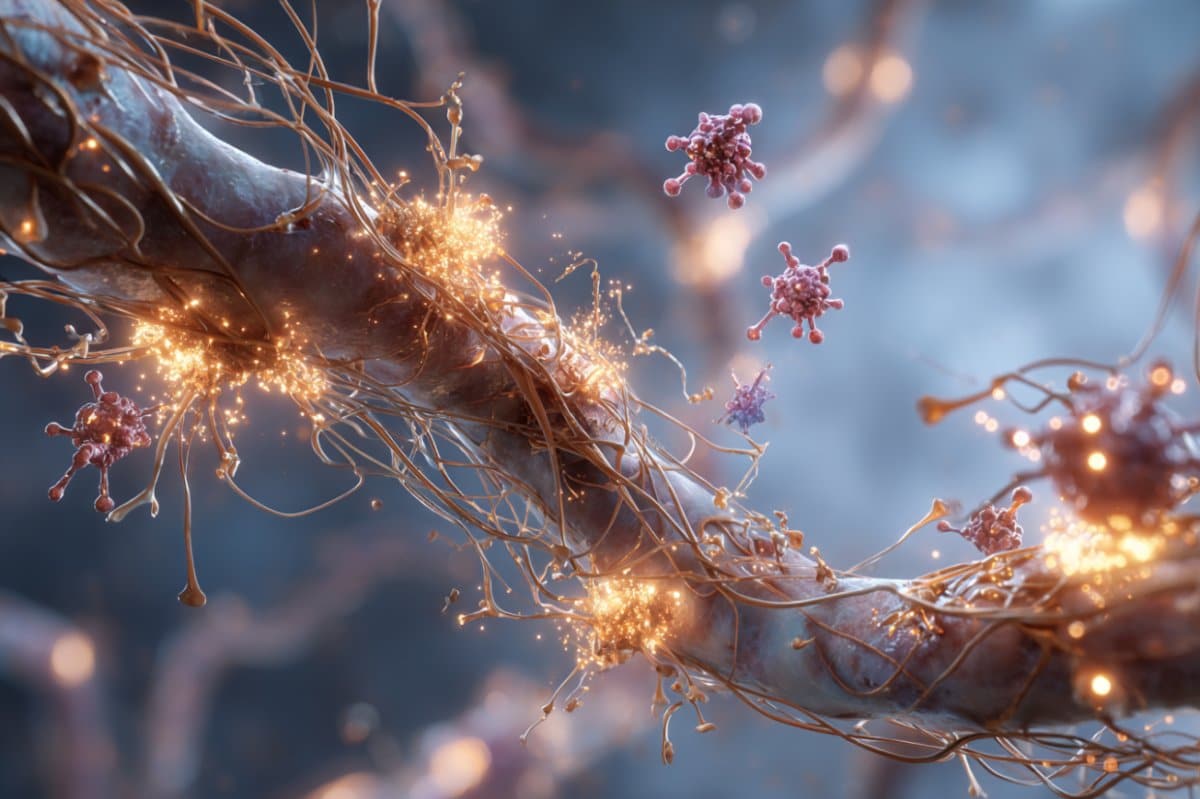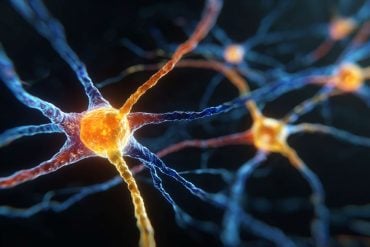Summary: A new study has uncovered why the blood-brain barrier — the brain’s protective shield — becomes leakier with age, potentially triggering memory decline. Researchers identified that proteins N-cadherin and occludin, which help maintain the barrier’s tight junctions, decrease over time.
This weakening allows harmful molecules to pass into the brain, disrupting normal function. Because these changes begin in middle age, the findings suggest there is a significant therapeutic window to prevent or slow cognitive decline.
Key Facts:
- Protein Link: Aging reduces N-cadherin and occludin levels, weakening the blood-brain barrier.
- Memory Impact: Barrier breakdown contributes to early cognitive decline.
- Therapeutic Potential: Targeting the N-cadherin signaling pathway could help restore barrier function.
Source: University of Illinois
A new study from researchers at the University of Illinois Chicago reveals how the blood-brain barrier gets leakier with age, contributing to memory deficits.
The study, published in Cell Reports, uncovered the molecular mechanisms behind this process and could provide new therapeutic targets to address cognitive decline earlier in the aging process.

The blood-brain barrier is a layer of cells lining the brain’s blood vessels that keep viruses, bacteria and toxins out while allowing helpful nutrients and chemicals in. A key structure of the blood-brain barrier are tight junctions that act as bridges between cells, restricting entry of molecules. A protein called occludin helps fulfill this essential role.
“It’s a highly regulatable process that allows some molecules to go through and others to remain in circulation,” said Yulia Komarova, UIC associate professor in the department of pharmacology and regenerative medicine at the College of Medicine and senior author of the study.
“Basically, it’s a mechanism that separates the central nervous system from everything else.”
But like many physiological processes, the blood-brain barrier starts to malfunction as we age — it gets leakier. This can lead to memory changes as early as middle age, Komarova said. Exactly how this occurs is unclear.
In previous research, Komarova and her colleagues tested what happened if they deleted a protein called N-cadherin from the cells lining blood vessels. This made the vessels leakier in the lungs — and in the brain.
In the new study, Komarova teamed up with Leon Tai, associate professor of anatomy and cell biology in the College of Medicine, to see if this leakage had any effect on memory. Mice without functional N-cadherin could learn tasks as well as normal mice, but they quickly forgot what they learned.
A closer look at the brains of these mice showed that the issue was linked to a protein called occludin, which helps form tight junctions in the blood-brain barrier. Both aging brains and young brains lacking N-cadherin had fewer occluding junctions, resulting in a leakier barrier.
Molecular experiments showed that when N-cadherin proteins on neighboring blood vessel cells interact, they trigger a signaling pathway that stabilizes occludin, helping to maintain the integrity of the blood-brain barrier.
Komarova collaborated with Dr. Jeffrey Loeb, head of neurology and rehabilitation in the College of Medicine, to examine human brain tissue from the university’s NeuroRepository collected during epilepsy surgeries.
Comparing samples from younger patients (late teens to 20s) with those from middle-aged patients (40s to 50s), they found that the older group had reduced levels of both N-cadherin and occludin, mirroring the findings in mice.
The study is the first to look at how the signaling activated by N-cadherin controls organization of the tight junctions implicated in blood-brain barrier permeability, she said.
Because these deficits start to show in middle age, fairly early in the cognitive aging process, it’s not “too late in the game to start treatment,” said Komarova. Her team is now investigating if steps in the signaling pathway activated by N-cadherin could be therapeutic targets.
“This paper shows that actually there might be a much bigger therapeutic window for treatment of any age-related cognitive decline condition,” she said.
Other UIC co-authors on the paper include Quinn Lee, Wang Ching Chan, Shuangping Zhao, Harry Hailemeskel, Riya Thomas, Mohsin Zafar, Fozia Mir, Peter Toth and Kamran Avanki.
About this aging and neurology research news
Author: Francesca Sacco
Source: University of Illinois
Contact: Francesca Sacco – University of Illinois
Image: The image is credited to Neuroscience News
Original Research: Open access.
“Deficiency in N-cadherin-Akt3 signaling impairs the blood-brain barrier” by Yulia Komarova et al. Cell Reports
Abstract
Deficiency in N-cadherin-Akt3 signaling impairs the blood-brain barrier
The blood-brain barrier (BBB) restricts the passage of protein-rich fluids through tight junctions (TJs) formed between brain endothelial cells (BECs).
BBB restrictiveness diminishes with aging, but the underlying mechanisms remain unclear. BECs establish physical contact with pericytes via N-cadherin homophilic adhesion.
In cortex tissue from young and middle-aged patients, the age-related loss of vascular N-cadherin corresponds with the disruption of occludin TJs.
Genetic deletion of N-cadherin in ECs impairs occludin TJs, leading to reduced cerebral tissue perfusion and spatial memory deficit.
Mechanistically, the assembly of N-cadherin contacts stabilizes occludin TJs via the phosphoinositide 3-kinase p110β-Akt3 circuit, which is disrupted with aging.
Furthermore, mutation of occludin Ser471 to Ala destabilizes occludin TJs even in the presence of N-cadherin contacts.
These findings highlight a functional role for N-cadherin as a signaling hub that stabilizes occludin at TJs in a phosphorylation-dependent manner, thereby supporting BBB integrity.






